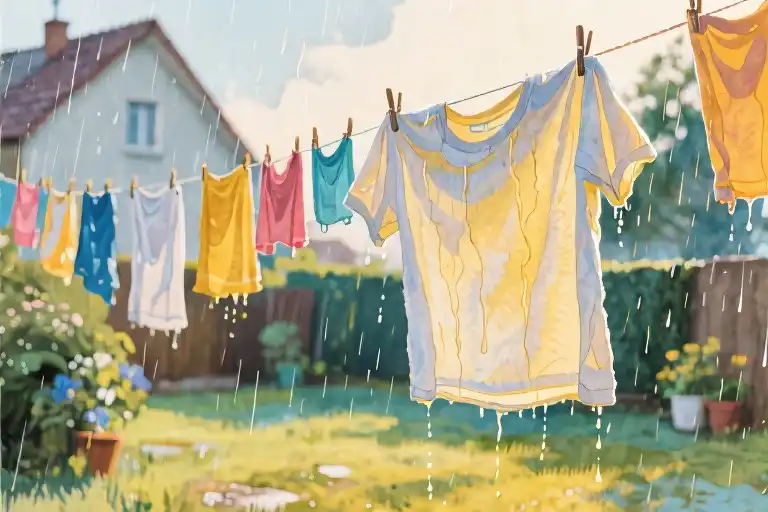There are weights that settle between my ribs—not the kind you can name or explain, but the quiet heaviness that lingers like a secret you keep even from yourself. It doesn’t feel like loneliness. It feels like pressing a palm against your own chest and whispering, I know.
The world insists that silence is a void to be filled, that every unspoken ache demands an audience. But what if some things lose their truth the moment they’re spoken aloud? What if silence isn’t emptiness, but a room where you finally stop apologizing for how you feel?
I hold my thoughts like glass figurines—too fragile for clumsy hands, too precious to risk being misunderstood. There’s relief in letting them exist without translation. No need to shrink them into digestible pieces, no fear of someone mistaking tenderness for brokenness. Silence becomes the velvet lining where my untamed emotions can curl up, undisturbed.
People mean well when they say, You should talk about it. But they rarely ask if you want to. They don’t see how words can turn wounds into performances, how sometimes the gentlest touch still stings. Not every story needs a witness. Some pains prefer the dignity of darkness.
Here, in the quiet, I don’t have to be legible. My contradictions don’t need reconciling. The parts of me that are still learning to breathe aren’t smothered by expectations. Silence isn’t surrender—it’s the space where I reclaim the right to be unedited.
Maybe healing doesn’t always sound like conversation. Maybe it’s the rustle of your own breath in the dark, the weight of your hand on your heart, the unspoken pact that says: You’re allowed to exist exactly as you are, even here, even now.
Some truths are too tender for daylight. Some silences are sanctuaries.
The Shelter of Silence
There are weights we carry that never make it to our lips. They settle between our ribs like stones smoothed by river water—heavy, but familiar in their presence. This isn’t loneliness. It’s something quieter, more deliberate: the conscious choice to hold certain feelings close, where they can’t be mishandled by well-meaning hands.
Silence builds a peculiar kind of safety. When thoughts remain unspoken, they don’t require translation into clumsy words that never quite fit. No need to shrink vast emotions into bite-sized explanations for someone else’s comfort. In this private space, vulnerability isn’t performative. There’s no audience to mistake tenderness for fragility, no pressure to perform healing on demand.
I’ve come to think of my unshared thoughts as stained glass held in cupped palms—fragile, yes, but glowing with colors that only make sense from certain angles. The light shifts when you try to describe it to others; the blues become grays, the golds turn to yellow. Some experiences resist narration. Some aches prefer the dignity of existing without commentary.
Society often mistakes silence for emptiness. “You should talk about it,” they say, as if words were the only bridge across emotional chasms. But they don’t understand how conversation can sometimes scatter what silence gathers. How the act of speaking can turn lived experience into anecdote, smoothing rough edges until the truth no longer fits its original shape.
In this shelter of quiet, thoughts become old friends who never interrupt. They don’t finish my sentences with their own assumptions. They don’t pat my shoulder while mentally composing their response. The silence between us isn’t absence—it’s the comfortable space where understanding grows without being named.
Yet the world insists this is wrong. That keeping parts of myself unspoken is a failure of connection rather than an act of preservation. But I’ve learned that some truths are too tender for daylight. Some chapters of our stories need the soft focus of twilight to be fully seen.
Here, in this quiet, I don’t have to justify why certain feelings exist. They simply do—complex, contradictory, and entirely mine. The weight isn’t gone, but it’s bearable in ways that spoken words might disrupt. Like holding a breath underwater, there’s power in knowing when to surface and when to let the pressure shape you.
But society tells me this is wrong…
The Disillusionment of Sharing
There’s an unspoken script we’re all expected to follow when carrying emotional weight. “You should talk about it,” they say with concerned faces, as if words could somehow dilute the density of what lives inside us. Their advice comes wrapped in kindness, this cultural mantra that sharing equals healing. But what happens when the words leave your mouth and dissolve into the air between you and someone who’s already forming their response before you finish speaking?
I’ve learned to recognize that particular glaze in people’s eyes – the moment listening becomes waiting. They nod at the right places, make sympathetic noises, but their fingers twitch toward phones hidden in pockets. Their posture shifts imperceptibly, preparing to deliver the prescribed comfort: “I’m so sorry you’re going through that. Have you tried…?” And just like that, my vulnerability becomes a problem to be solved rather than an experience to be witnessed.
The supermarket cashier shows more genuine interest in my grocery choices than some friends do when I attempt to explain why certain days feel like walking through wet cement. Their discomfort with silence pushes them to fill it with platitudes: “Everything happens for a reason,” or worse, “At least…” sentences that amputate my pain to make it more palatable for their consumption. These conversations leave me emptier than before, having traded my raw truth for someone else’s need to fix things.
Social media amplifies this performance, turning personal anguish into content. We’ve created a economy of trauma disclosure where the most dramatic storytellers get the most hearts and hugs emoji. The unspoken rule seems to be that if your pain doesn’t translate into an engaging narrative, it somehow doesn’t count. I’ve watched people edit their suffering into digestible threads, sanding down the jagged edges until their experiences fit neatly into 280-character boxes with trigger warnings.
What nobody mentions is the emotional hangover that comes after oversharing – that peculiar shame of having exposed too much to someone who didn’t have the capacity to hold it. Like handing someone a priceless heirloom only to watch them examine it with greasy fingers. The memory replays in fragments: their slight recoil when my voice broke, the way they changed the subject too quickly afterward, the text that never came checking if I’d made it home okay.
Professional therapy spaces aren’t immune to this either. I’ve sat across from clinicians whose standardized questions felt like being processed through an emotional assembly line. “And how did that make you feel?” they ask while visibly glancing at the clock, turning my inner world into case notes. Even well-intentioned therapists can make you feel like you’re performing your pain correctly or incorrectly.
Perhaps the cruelest irony is that the people who urge us to open up often have the least tolerance for what comes out. They want the Hollywood version of vulnerability – neatly timed revelations followed by uplifting music, not the messy reality of snotty noses and long pauses. Real suffering doesn’t follow narrative arcs; it loops and doubles back and rarely delivers satisfying conclusions.
This isn’t to say all sharing is futile. Occasionally, you find those rare humans who can simply say “That sounds incredibly hard” without reaching for the emotional first aid kit. But they’re the exception, not the rule. Most conversations about pain become negotiations – how much is too much to share, which details will make them uncomfortable, what version of my truth will be acceptable to their ears.
So I’ve stopped performing my healing for an audience. Some silences aren’t prisons but sanctuaries, places where my experiences don’t need to be translated or justified. There’s power in deciding what gets spoken and what remains mine alone – not as a burden, but as a sacred keeping.
The Quiet Strength of Unspoken Things
There’s a peculiar power in the things we choose not to say. Not the kind that builds pressure until it explodes, but the gentle kind that wraps around your ribs like morning mist – present, weightless, and entirely your own. This silence isn’t empty. It’s full of everything we’ve ever felt but couldn’t name.
Some emotions resist translation. They curl up in the hollow of your throat, not as obstacles but as companions. When people say “you should talk about it,” they don’t understand how words can sometimes make things more real than you’re ready for. Like pressing on a bruise to prove it hurts. The ache becomes performative. The wound becomes audience.
I’ve learned that silence can be its own language. It speaks in the space between heartbeats, in the way certain memories flicker behind your eyes without ever crossing your lips. There’s dignity in this quiet. A sacred privacy where feelings aren’t dissected or diluted by explanation. Where you don’t have to shrink your truth to fit someone else’s comprehension.
The world romanticizes being known, as if every secret shared is a burden lifted. But what about the freedom of being unknown? Of keeping certain chapters written in a cipher only your soul understands. These unspoken places aren’t prisons – they’re sanctuaries. Behind their walls, you’re free from pity’s clumsy hands, from well-meaning but reductive advice, from the exhausting labor of making yourself understood.
Remember the glass we held earlier? That fragile transparency between our palms? Silence is what keeps it from shattering. Not because the truth is too delicate to survive air, but because some truths grow stronger when protected from the elements of other people’s perceptions.
There’s courage here too. In a culture that conflates vulnerability with verbal confession, choosing silence is its own rebellion. It says: I don’t owe my interior world to anyone. My feelings are valid even when they don’t translate. My healing doesn’t require witnesses.
Perhaps this is what self-possession looks like – knowing which parts of you want speaking, and which prefer the quiet company of your own understanding. Like keeping a candle burning in an inner room where no winds can reach it. The light is smaller, yes, but it’s steady. And sometimes that’s the only illumination we need.
The Unspoken Peace: Why Some Pains Don’t Need an Audience
Some stories aren’t meant to be told. They settle between your ribs like quiet companions, their weight familiar but not crushing. There’s an unnameable safety in carrying them alone—no translations needed, no risk of clumsy hands mishandling what you’ve learned to hold so carefully.
Silence, when chosen, becomes more than absence. It’s a sanctuary where your thoughts don’t need to justify their existence. No trimming them into bite-sized pieces for others to digest. No rehearsing explanations that always fall short. Just you and the raw, unedited truth of what you feel.
People mean well when they urge you to speak. They recite the script we’ve all heard: Bottling things up is unhealthy. Sharing is healing. But they rarely account for the exhaustion of being misunderstood, or how some wounds ache louder when exposed to air. Not every silence is a cry for help. Sometimes it’s simply preservation—keeping certain pieces of yourself safe from the well-intentioned but inevitable distortion of outside perception.
There’s power in maintaining a private inner world. A place untouched by pity, free from the pressure to perform recovery on someone else’s timeline. Your unspoken truths can exist there in their purest form, without becoming case studies for amateur analysts.
This isn’t about isolation. It’s about sovereignty. The recognition that you—not self-help tropes—get to decide which parts of your experience require witnessing. Some emotions need room to breathe, not an audience. Some healing happens in the quiet spaces between words.
That heaviness you carry? It might never soften into something shareable. And that’s okay. Not every chapter needs to be read aloud to be lived fully.
Some stories, silence is the best listener.
You have the right to let certain feelings remain yours alone—unexplained, unjudged, and unapologetically so.





